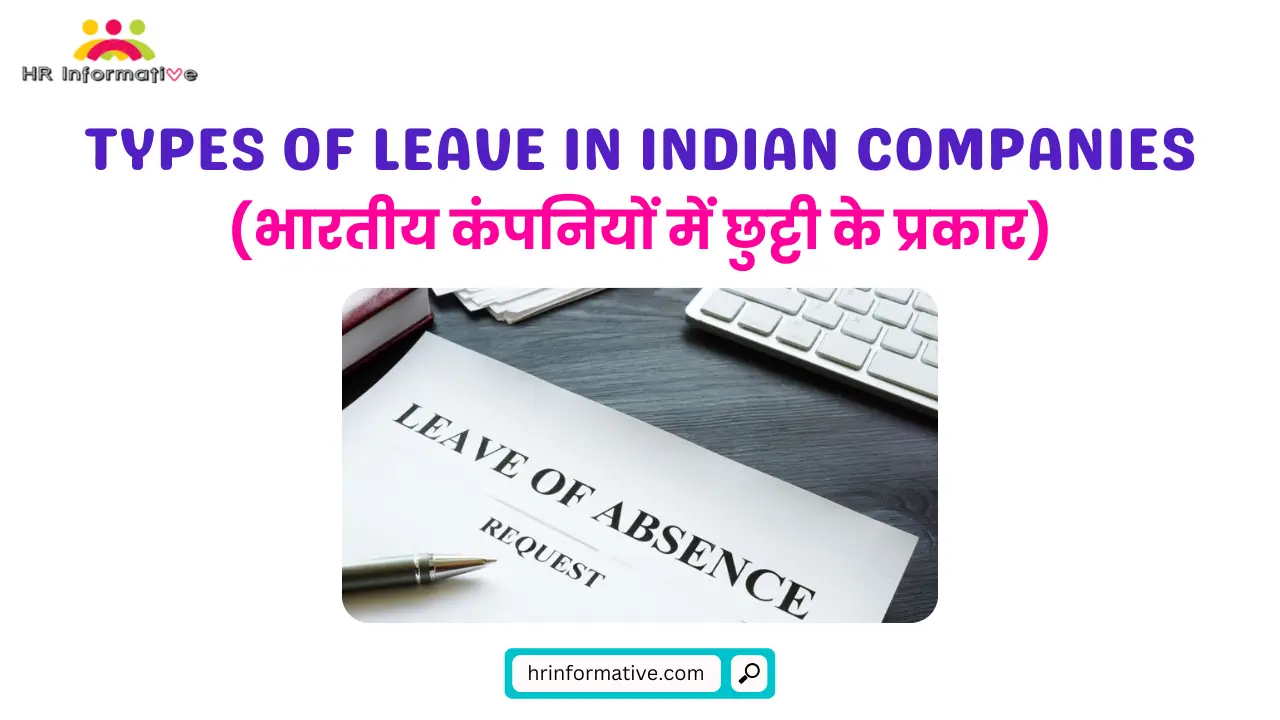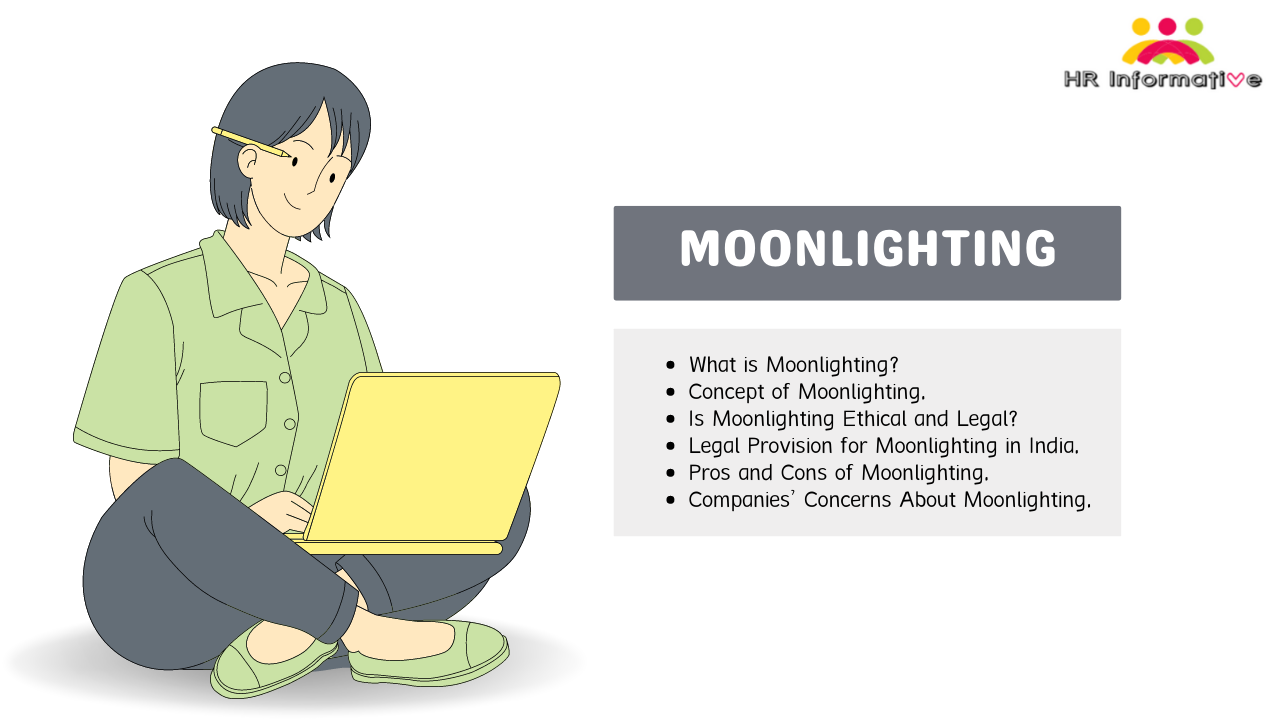Introduction
Leave policies are an essential aspect of every organization, providing employees with the necessary flexibility to manage personal and professional commitments. In India, companies follow specific leave structures to ensure a healthy work-life balance for their employees. This article explores the various types of leave offered by Indian companies, shedding light on their purpose, eligibility, and regulations. Whether you’re an employee or an employer, understanding these leave categories can help create a harmonious work environment.
1. Casual Leave
Casual leave, often referred to as CL, is designed to accommodate unforeseen situations or short-term personal commitments. It is a type of paid leave granted to employees for attending to urgent matters that cannot be deferred. Most Indian companies provide a certain number of CL days annually, typically ranging from 7 to 10 days. However, the specific policies may vary depending on the organization. CL is generally not cumulative and does not carry forward to the next year.
2. Sick Leave
Sick leave, as the name suggests, is granted to employees when they are unable to work due to illness or medical conditions. It allows individuals to take time off to recover without any financial repercussions. In India, the number of sick leave days varies across companies, typically ranging from 7 to 14 days per year. Some organizations may require employees to submit a medical certificate for availing sick leave, particularly for longer durations.
3. Earned/Privilege Leave
Earned leave, also known as privilege leave or PL, is an accumulation of leave days based on an employee’s length of service. It serves as a form of paid time off for personal reasons, such as vacations, family events, or other non-emergency situations. The number of earned leave days an employee receives increases with their tenure in the company. In India, companies generally grant around 15 to 30 days of earned leave per year, depending on their leave policies.
4. Maternity Leave
Maternity leave is a crucial provision for female employees in Indian companies. It allows expectant mothers to take time off before and after childbirth to ensure their well-being and that of their newborn. The duration of maternity leave can vary depending on the company and applicable labor laws. The Maternity Benefit Act in India currently allows for up to 26 weeks of paid maternity leave, providing a supportive environment for women employees during this significant life event.
5. Paternity Leave
Recognizing the importance of parental involvement, some progressive Indian companies have introduced paternity leave. This type of leave allows fathers to take time off to support their partners during pregnancy, childbirth, or in the early stages of parenting. The duration of paternity leave varies across organizations, typically ranging from a few days to a few weeks. It enables fathers to actively participate in the upbringing of their child while maintaining a healthy work-life balance.
6. Bereavement Leave
Bereavement leave, also known as compassionate leave, is granted to employees to grieve the loss of an immediate family member, such as a spouse, parent, or child. This type of leave allows individuals to cope with their emotions and attend to funeral arrangements or other related matters. The number of bereavement leave days offered by companies varies, typically ranging from 3 to 7 days. Employers understand the significance of providing support during difficult times, fostering empathy and compassion within the workplace.
7. Special Leave for Women
In addition to maternity leave, Indian companies may offer special leave provisions for women employees to address specific needs. This could include leave for reproductive health concerns, gynecological appointments, or medical conditions unique to women. The number of days and eligibility criteria for such leaves vary across organizations, reflecting their commitment to promoting gender equality and supporting the well-being of their female workforce.
8. Leave Without Pay (LWP)
Leave Without Pay (LWP) is an option provided by Indian companies for employees who require an extended period of time off work, beyond their available leave balances. LWP is typically granted for personal reasons or circumstances that do not fall under the purview of other leave categories. However, it’s important to note that LWP is unpaid, and the duration of leave granted may vary based on the company’s policies and the employee’s specific situation. Taking LWP allows individuals to prioritize their personal needs while maintaining a connection with their organization.
9. Study Leave
Recognizing the importance of continuous learning and professional development, some Indian companies offer study leave to employees who wish to pursue further education or skill enhancement programs. Study leave allows individuals to dedicate a specific period of time to acquire knowledge or gain qualifications that are relevant to their job or future career prospects. The duration and eligibility criteria for study leave may differ among organizations, and it is usually subject to approval based on the employee’s role, performance, and potential benefit to the company.
10. Compensatory Leave
Compensatory leave, also known as comp-off, is provided to employees who have worked on public holidays or weekends as a form of compensation for the additional time and effort put into their work. This type of leave allows individuals to take time off on an alternate day to balance their work-life commitments. The number of comp-off days granted may vary depending on the company’s policies and the nature of the work performed during the extra hours or holidays.
Conclusion
In summary, Indian companies offer various types of leave to ensure that employees can maintain a healthy work-life balance and effectively manage their personal commitments. From casual leave for unforeseen situations to earned leave for planned vacations, each category serves a specific purpose. Additionally, specialized leaves such as maternity leave, paternity leave, bereavement leave, and study leave to cater to specific needs and circumstances. It is crucial for both employees and employers to understand these leave categories, as they contribute to fostering a supportive and inclusive work environment. By prioritizing employee well-being and providing the necessary flexibility, Indian companies can create a positive workplace culture that encourages productivity, satisfaction, and overall growth.
Frequently Asked Questions (FAQs)
Q1: Are the types of leave mentioned in this article applicable to all Indian companies?
Ans: The types of leave mentioned in this article are common among Indian companies, but it’s important to note that specific policies may vary from one organization to another. It is recommended to refer to your company’s employee handbook or HR department for accurate and up-to-date information regarding leave policies.
Q2: Can I accumulate unused casual leave for the following year?
Ans: In general, casual leave is not cumulative and does not carry forward to the next year. It is advisable to utilize your allotted casual leave within the given time frame to avoid losing those days.
Q3: Do I need to provide a medical certificate for availing sick leave?
Ans: The requirement for a medical certificate when availing sick leave varies across organizations. Some companies may require a medical certificate for extended sick leave, while others may have a threshold duration before it becomes mandatory. It is recommended to check your company’s leave policy to understand the specific requirements.
Q4: Is paternity leave available to all employees in Indian companies?
Ans: While paternity leave is gaining recognition in India, it may not be universally applicable to all organizations. Some progressive companies have introduced paternity leave to support the involvement of fathers during the early stages of parenting. However, the availability and duration of paternity leave can vary, and it’s important to refer to your company’s policies for accurate information.
Q5: How does earned leave accrue?
Ans: Earned leave, also known as privilege leave, accrues based on an employee’s length of service in the company. The number of earned leave days generally increases with tenure, providing employees with more paid time off as a reward for their dedication and loyalty to the organization.
Q6: What is the maximum duration of maternity leave in India?
Ans: The Maternity Benefit Act in India currently allows for up to 26 weeks (182 days) of paid maternity leave. This duration includes both pre and postnatal leave.
Q7: Can I take leave without pay for personal reasons?
Ans: Yes, Indian companies may provide the option of Leave Without Pay (LWP) for employees who require an extended period of time off work for personal reasons. LWP allows individuals to take time off beyond their available leave balances, but it’s important to note that this type of leave is typically unpaid.
Q8: How can I apply for study leave?
Ans: The process for applying for study leave may vary among companies. It is advisable to check your company’s policies and consult with your supervisor or HR department. Typically, you would need to submit a formal request outlining the details of the study program or course you wish to pursue and how it relates to your job or career development.
Q9: Is there a legal requirement for providing bereavement leave in India?
Ans: While there is no specific legal requirement for providing bereavement leave in India, many companies recognize the need for compassionate leave and have incorporated it into their policies. The number of bereavement leave days offered may vary, and it’s advisable to refer to your company’s leave policy for more information.
Q10: Can comp-off be carried forward to the next year?
Ans: The carry-forward policy for compensatory leave, or comp-off, depends on the company’s specific policies. Some organizations may allow comp-off days to be carried forward to the next year, while others may require them to be utilized within a certain time frame. It is recommended to refer to your company’s policies for accurate information on comp-off utilization and carry-forward provisions.
Read Other Articles :
- Maternity Leave Rules in India 2023: A Comprehensive Guide
- Principles of Natural Justice: Ensuring Fairness and Due Process
- Sexual Harassment of Women at Workplace (Prevention, Prohibition, and Redressal) Act, 2013
- Labour Day: A Celebration of Workers’ Contributions to Society
- Job Types: A Comprehensive Guide to Career Options



